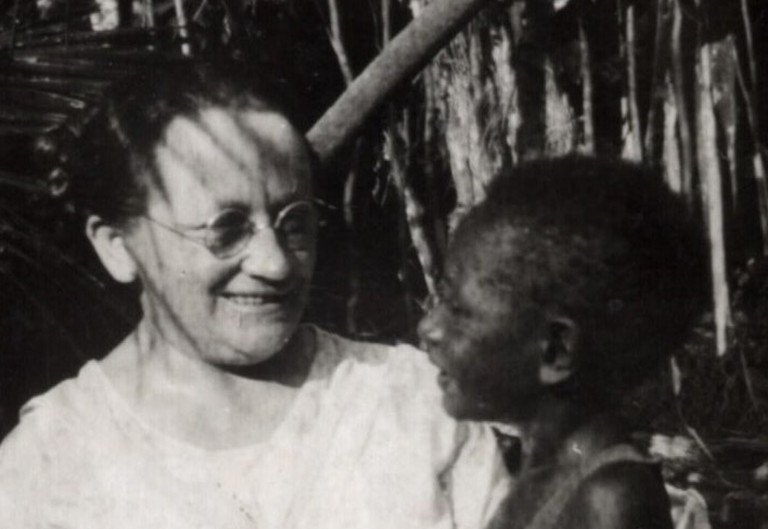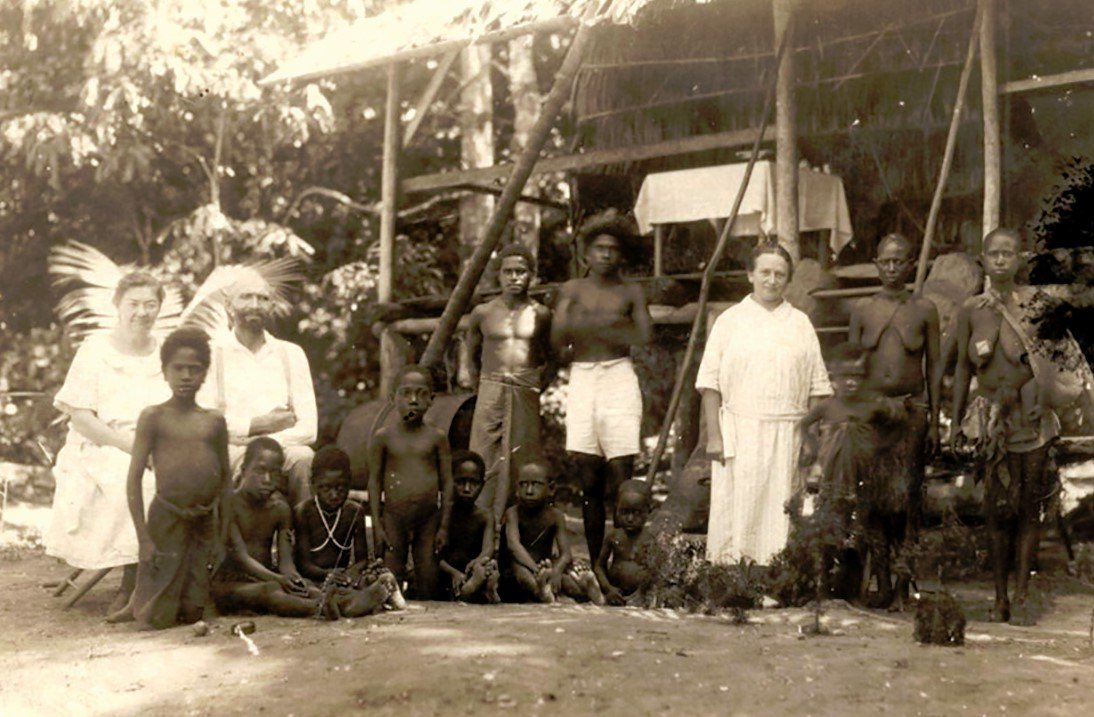Mária Molnár, born in 1886, was the most notable Hungarian missionary of the Reformed Church in Hungary, and was the only Hungarian missionary who undertook a mission between the two World Wars. Molnár used the knowledge she acquired as a voluntary nurse during World War I in her mission work on the Manus and Pityilu Islands of the Admiralty Islands, ultimately becoming a martyr of the Reformed Church in Hungary during the Pacific theater of World War II.

Early in her life, Mária Molnár came into contact with one of the Hungarian youth missionary organizations of the Protestant revival, which began in America in the latter part of the 19th century. The members of this organization, the Bethany Society, committed themselves to serve their savior, Jesus Christ, with their lives. Molnár decided to commit herself to this same mission, leaving her job and joining the Filadelfia Deaconess Association in Budapest. During this time period, the form of Protestant diaconate became widespread throughout Europe; unmarried women professionally engaged in the service of Christ, living, studying, and working in some form of service in family residential communities. Following her training, Molnár worked as a nurse at the reformed Bethesda Hospital and then took on work as an operating room nurse in Nagyszőlős, Máramarossziget and Arad (Vynohradiv, Sighetu Marmației, and Oradea, today in Ukraine and Romania).
During World War I, she served as a voluntary nurse on the frontlines, tending to wounded soldiers and facing diseases like smallpox, typhoid fever, cholera, dysentery, scarlet fever, rubeola, and malaria. Her selfless service earned her the Silver Merit of the Kingdom of Hungary and the Medal of Valor.
Following the war, Mária moved to Győr in western Hungary to serve as a church deaconess and youth worker. Here, Mária taught Bible lessons, visited prisons and hospitals, and worked as a spiritual nurse in a suicide rehabilitation ward and among women facing unfortunate circumstances. After some time, Mária traveled to Germany to improve her language skills and was accepted in Bad Liebenzell, a town in Germany where the German Reformed Church had been training foreign mission workers. Molnár testified that “nothing is more terrible than when someone is not where God has placed them.” Despite an internal struggle in her motivations to pursue mission work on Manus Island, Mária stated that she applied “because [she] would be terrified if God was looking for [her] on the island of Manus and [she were] in Budapest.” And so, at the end of 1927, Mária Molnár departed for the islands, arriving in February of 1928.
At the time of her arrival on Manus Island, the largest of the Admiralty Islands (a province of Papua New Guinea), 14,000 people inhabited the island, living in villages of 100 to 200 people. It is reported that just fifteen years prior, it was still the custom to consume the flesh of one’s enemies following battle. In response to these customs, Mária said, “I'm not afraid…because Jesus stands at the door, and if anyone wants to come in, he simply pushes them away and won't let them in.ˮ

Within a few months, Mária was transferred to the nearby island of Pityilu, from which she would visit the surrounding islands teaching children from seven to ten, healing the sick during the day, and then giving sewing, Bible, and singing lessons for adults, ending her days with devotions and a walk after dinner.
Mária learned the native language and translated the Bible for them; the Gospel of Mark is published in the Pityilu language. Her testimony led to the conversion and baptism of many of them. When Mária relayed how the natives blew a snail horn to signal the beginning of the service, Hungarian Reformed congregations sent a bell to the Pityilu people.
With the outbreak of World War II, Mária was one of the few missionaries who chose to remain at her post and stayed throughout the Japanese occupation. During this time, Japanese forces initially spared the German mission, but in 1943, they reversed this stance, rounded up the foreigners, including Mária, on board the destroyer Akikaze, and executed them on the high seas.
Mária Molnár is remembered for her extraordinary service through her mission work in the Admiralty Islands. Her dreams to establish a girl’s school on Pityilu Island were realized only posthumously, a school bearing her name now operating there. The bell sent by the Hungarian Reformed communities continued to call worshippers to prayer daily until it was later damaged in a storm. In 2023, a delegation of the Hungarian Reformed Church brought with them a new bell as a replacement to ensure there would once again be a Hungarian bell on the island.